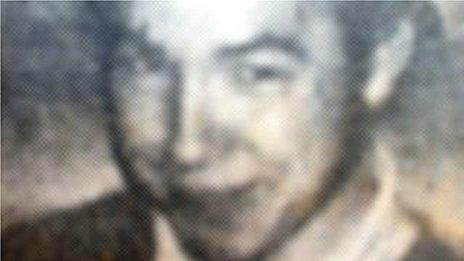Amnesty calls on Irish government to reopen 'hooded men' case
- Published
Nine of the original "hooded men" were in Dublin to hear a call for the Irish government to take the UK to the European Court
Amnesty International has called on the Irish government to reopen a landmark case against the UK government over the so-called "hooded men".
They are a group subjected to what the Army called "deep interrogation" in Northern Ireland in 1971.
In 1978, the European Court found that the UK had carried out inhuman and degrading treatment - not torture.
But Amnesty has said new information from the UK national archives suggests crucial evidence had been withheld.
Nine of the original "hooded men" appeared at an Amnesty International press conference in Dublin on Monday, calling for a reopening of the case by the European Court, ahead of a 4 December deadline.
Fresh information came to light in a television documentary, The Torture Files, by Irish broadcaster, RTÉ
It stemmed from documents held in the UK public records office in London.
The men, arrested under the policy of internment in 1971, were taken to a secret location and subjected to what was called "deep interrogation".
It has since been confirmed the secret location was Ballykelly Army base.
On their way to the interrogation centre in 1971, the men were hooded and thrown to the ground from helicopters.
They had been told they were hundreds of feet in the air, but were actually just a few feet from the ground.
They were then subjected to what the Army referred to as "the five techniques".
They were beaten, deprived of sleep, food and water, and forced to stand in a stress position against a wall for long periods.
While all of the men were interned, none was ever convicted.
The Ministry of Defence has consistently rejected allegations that it used torture.
It has also pointed out that it has "always fully co-operated" with statutory inquiries.
Fourteen men were hooded and subjected to the Army's "five techniques".
Eleven of those men are still alive. Legal action is being taken by 10 of them, as well as relatives of two of the men who have since died.
In total, 12 people are involved in the campaign to have the case re-examined by the European Court.
In Dublin on Monday, Colm O'Gorman, executive director of Amnesty International Ireland said the men and their families had a right to truth and justice.
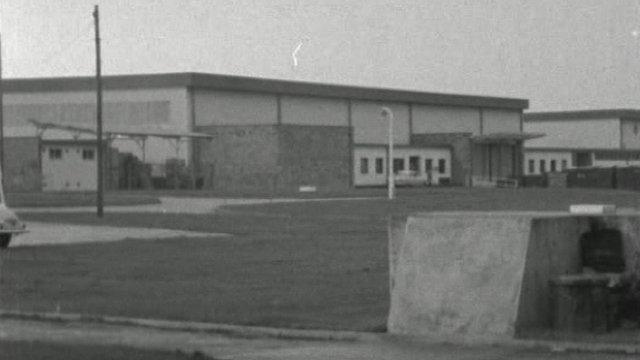
The old army base at Ballykelly where the men were taken
"We recognise the diplomatic challenges in Ireland's seeking to have this case reopened," he said.
"However, we hope the Irish government today shows the same determination of its predecessors in 1971 who took a bold and unprecedented step to uphold the rule of law and expose human rights violations.
"The Irish state argued then that the UK's actions amounted to torture - we call on it to do so again now.
"That means that a request to the European Court to look at this new information must be lodged within the next two weeks. The clock is ticking."
The Committee on the Administration (CAJ) and the Pat Finucane Centre (PFC) have welcomed Amnesty's call.
- Published28 November 2013
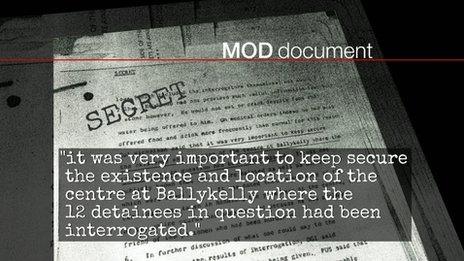
- Published28 November 2013
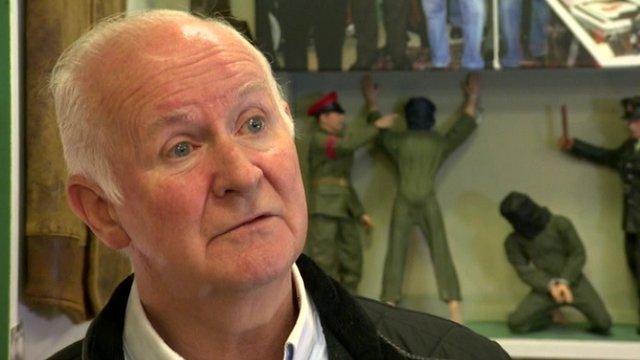
- Published6 August 2013
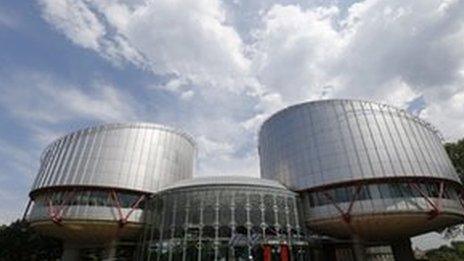
- Published6 October 2012
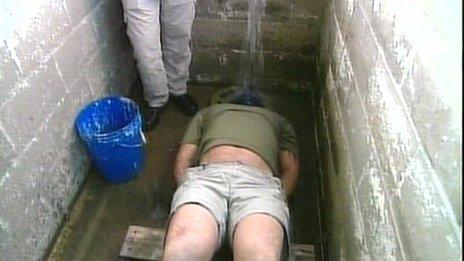
- Published21 June 2012
